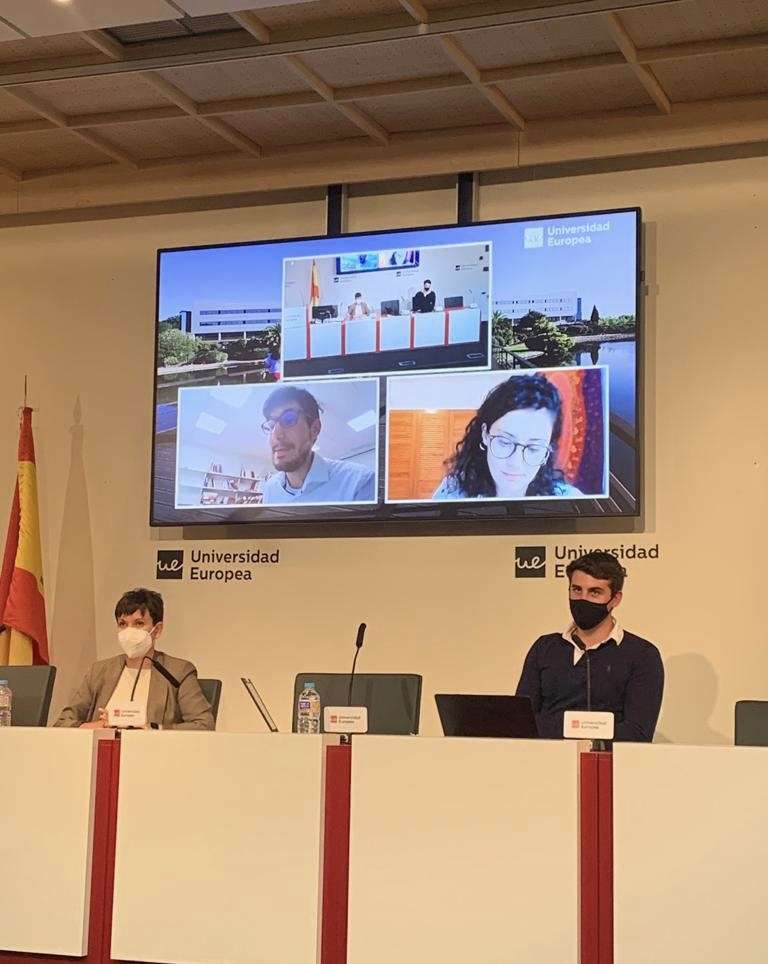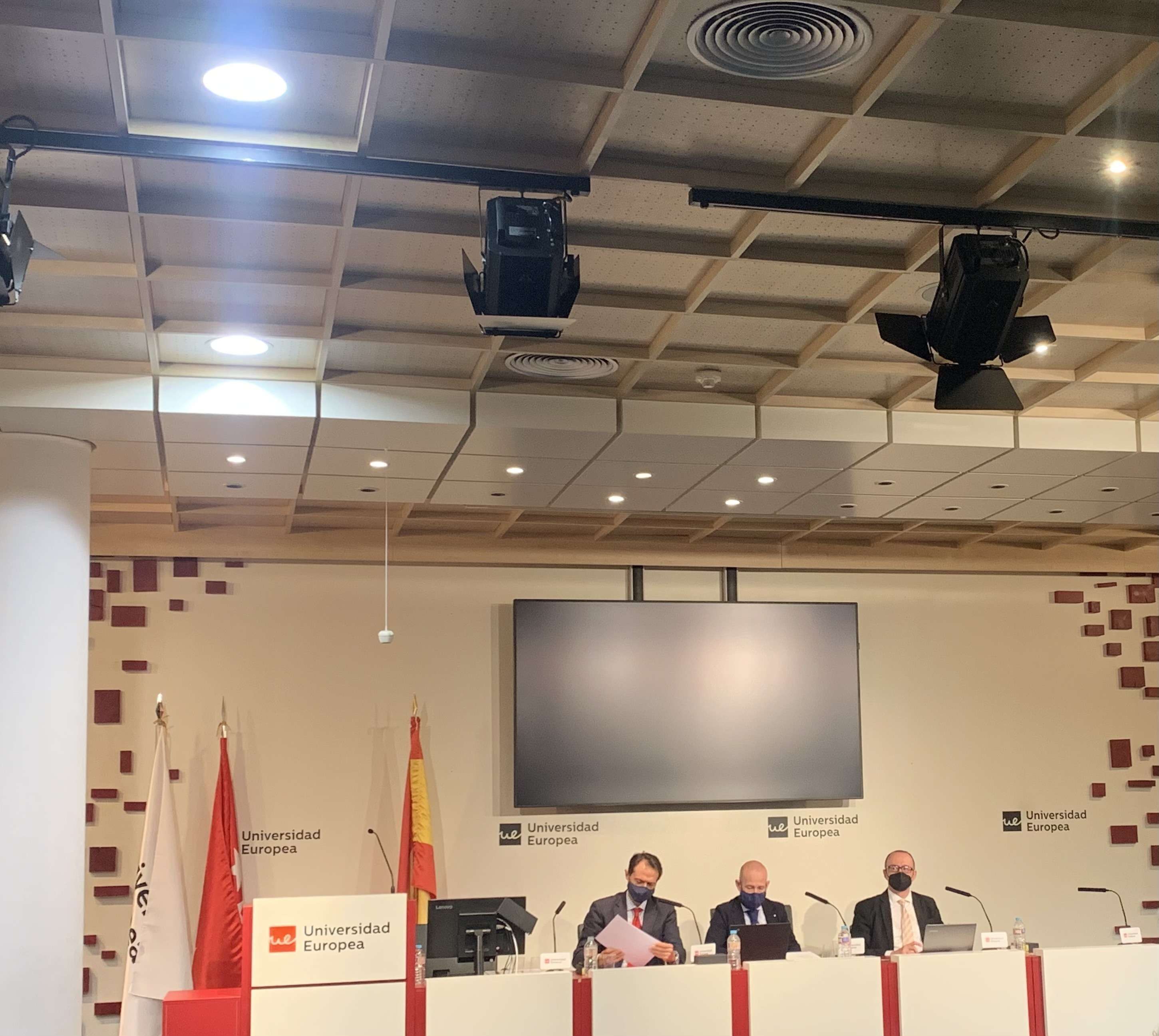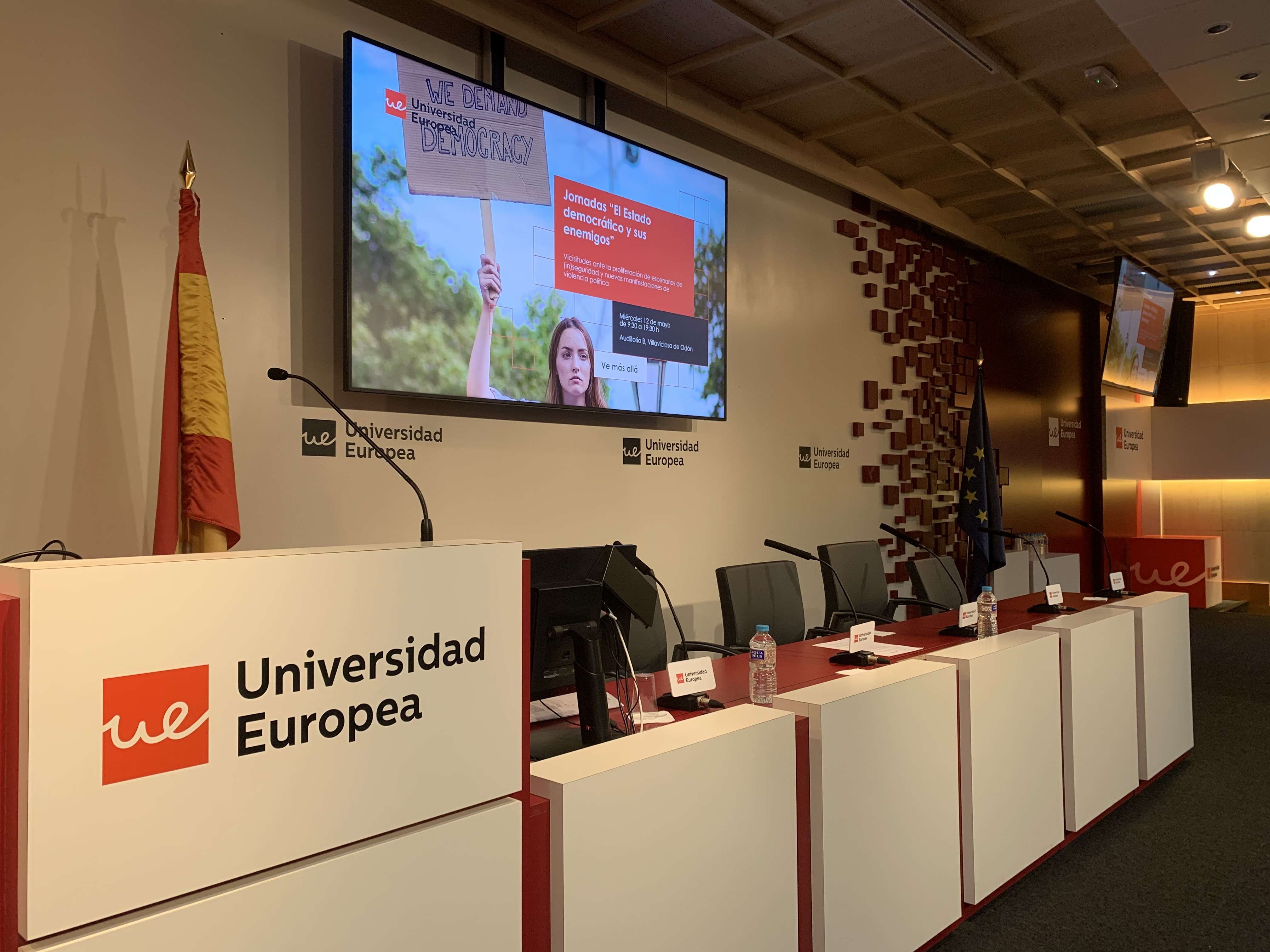Political institutions need to be updated to face new security threats

The research group on Public Policy, International Security and Global Governance at the European University of Madrid held a conference in the university's auditorium, in a hybrid format with both face-to-face and virtual attendance. The event was divided into several round tables, where the diversity of insecurity scenarios, the new challenges, the new response capacities of government institutions and the proliferation of alternatives to the state to combat the new threats were discussed. From an academic point of view, the topics of utmost relevance within the security and defence agenda were discussed in order to generate a debate on the challenges posed by European institutions to face the new threats and how the adoption of public policies can bring about a change in the security scheme.

The first round table featured the participation of José Julio Fernández Rodríguez, professor at the University of Santiago de Compostela and director of the Centre for Security Studies, who explained that terrorism, cyberthreats, organised crime, armed conflicts, espionage, weapons of mass destruction, emergencies, catastrophes, pandemics, economic crises, radicalism and climate change are the threats we face today. Security problems in these cases can affect the quality of our democracies, and the response of the public authorities must therefore be "securitarian", said Professor Fernández. In the legislative sphere, there have been various but ineffective measures, for example, the new definitions in the Penal Code to criminalise indoctrination or terrorism, the reform of the Criminal Procedure Act, the new regulations on access to information in matters of data protection, new regulations in intelligence centres and organisational structural changes such as the creation of the department of national security within Spain. Technological scenarios are becoming more and more relevant, cyber-threats, attempts to destroy information or steal it for economic and political reasons, the manipulation of information is generating a poor quality democracy, to the point of legitimising electoral processes. "Environmental scenarios are important because it is becoming increasingly clear that environmental problems are security problems, access to water and energy cause permanent conflicts," said Professor Fernández.

Criminal law must be one of the most essential tools for combating threats, legally shielding police and institutional actions. According to Dr Laura Zúñiga, Professor of Criminal Law and Director of the International Observatory against Transnational Organised Crime at the University of Salamanca, criminal law works well when it makes clear the limits between what is licit and what is illicit, as part of international drug trafficking moves through containers for the import and export of products. She establishes a need to look for acts that are effective in approaching the pragmatic reality, within the world of theory and how it is carried out in practice to solve these problems. "The current apolitical criminal policy is very symbolic, there has to be experience of phenomena such as modus operandi," said Dr. Zúñiga.

Within Europe, the threats can be found in its own territory, the FRONTEX agency has carried out several actions in recent years that have violated human rights, according to Julio Guinea, professor at the European University of Madrid. An agency that has a budget of 420 million dollars and that should be a guarantee before all legal procedures of the hot returns of migrants, violating the 1951 Geneva Convention on the Status of Refugees, "one of the ways to prevent this type of actions by some state security forces of the member states is to place a camera that allows the actions to be recorded", said Professor Guinea. Finally, in one intervention, a student named Claudia pointed out that one of the great dangers facing European democracies is the rise of anti-gender movements. A democratic system that has a preference or favouritism for one part of its society begins to lose its founding values as a regionally inclusive system.










